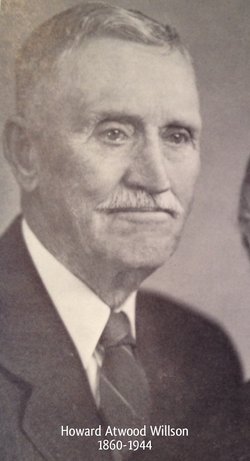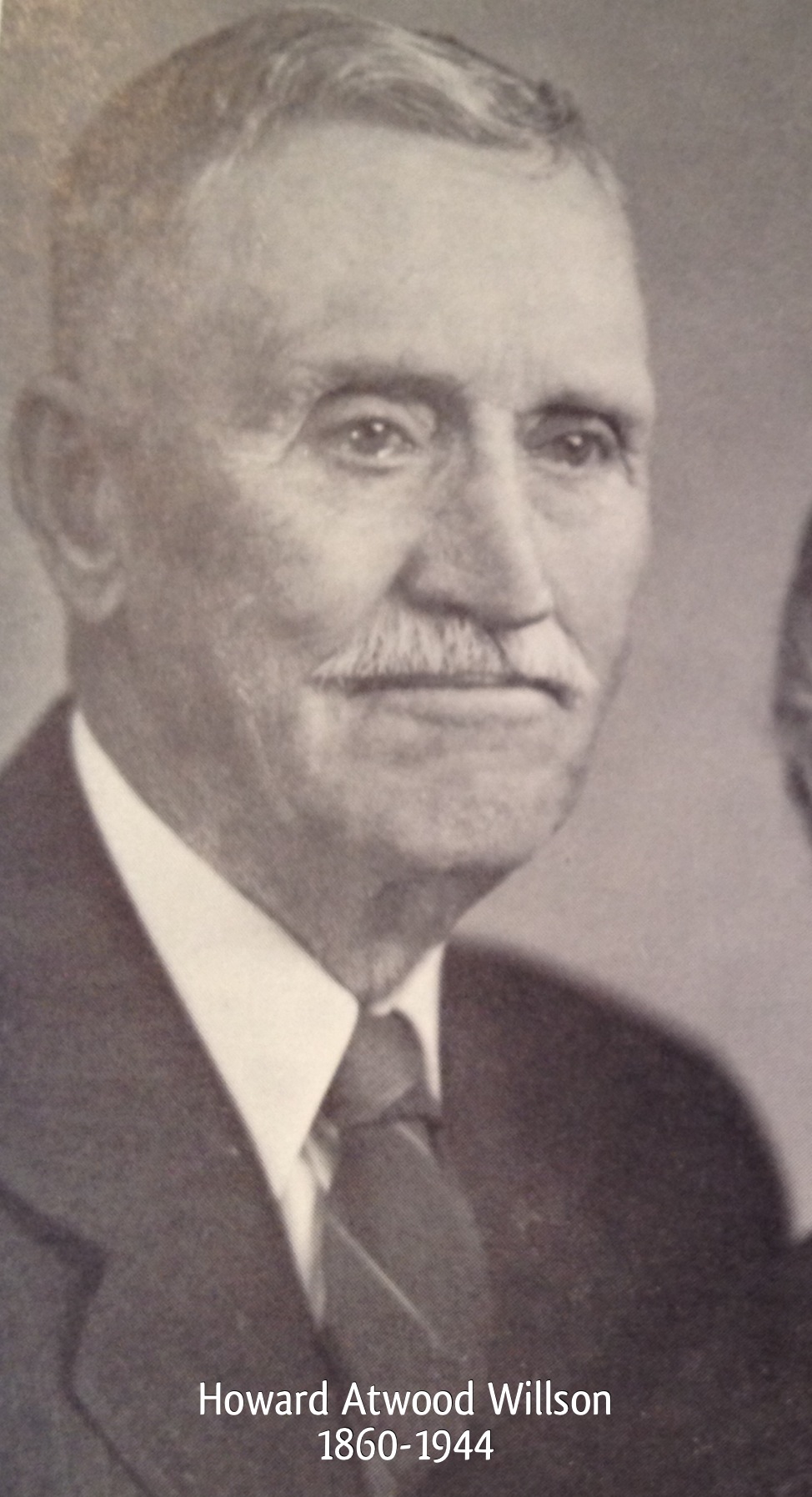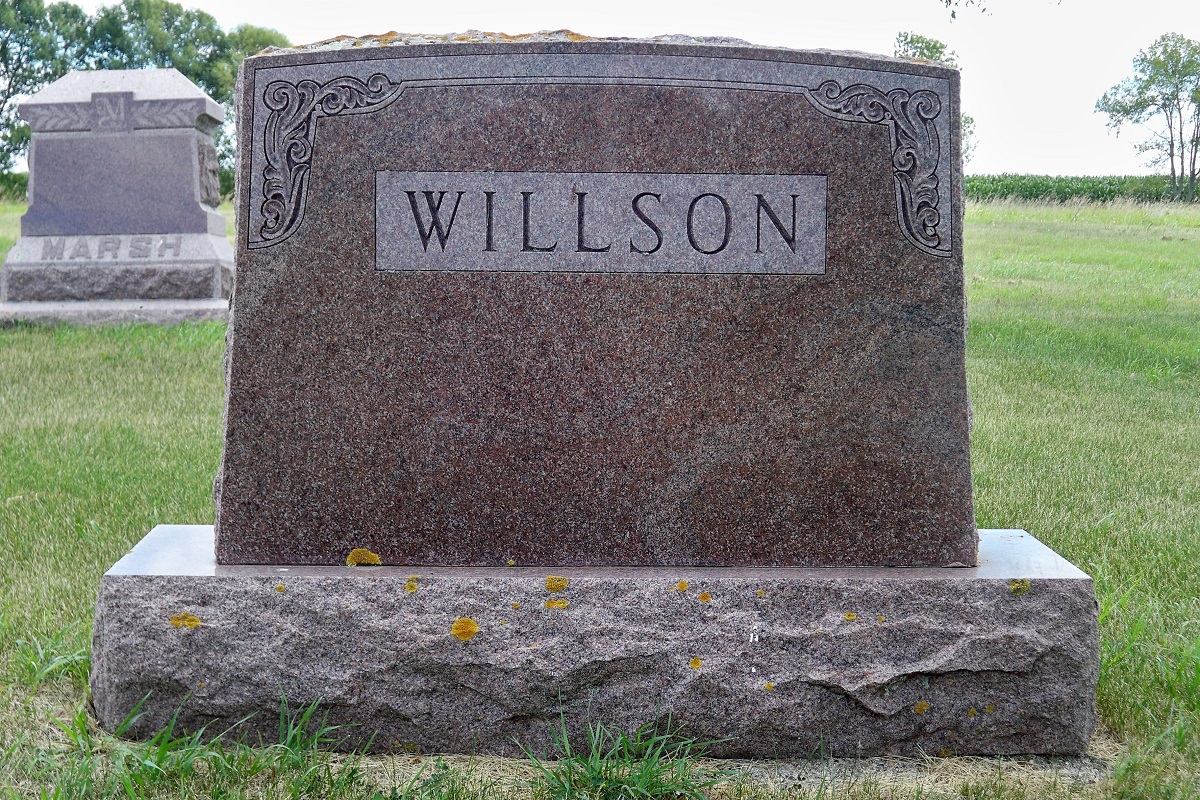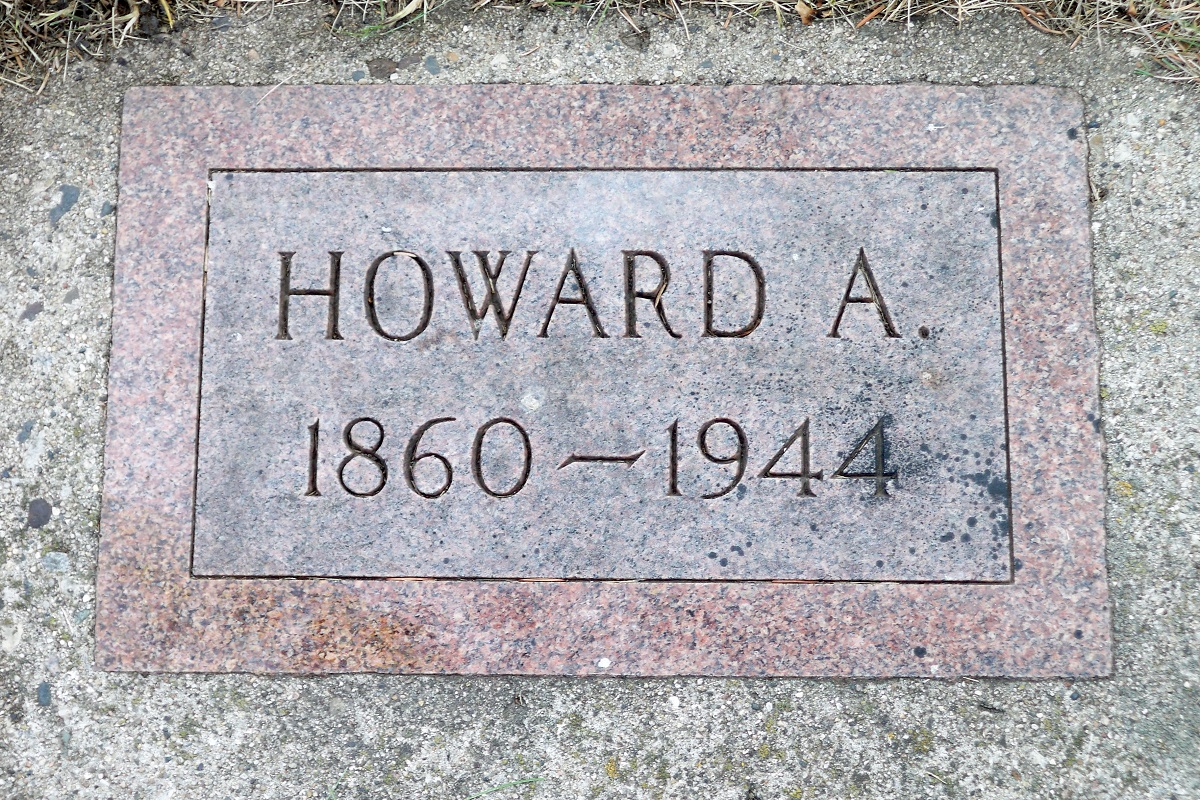On June 8, 1883 he filed on a homestead in Dover Township, Griggs County and for years he "worked out." One of his jobs was to carry the mail from the Uxbridge Post Office to Sanborn, a distance of 16 miles. The mail was only delivered once a week and that was Saturday. January of 1886 was the coldest he ever saw, for three Saturdays the thermometer registered 48 - 52 - 55 degrees below zero.
On June 19, 1893 Howard married Mary Elizabeth Hilborn, born 1874, daughter of H. A. Hilborn, who also came from Uxbridge, Ontario in 1883. They lived on his homestead in Griggs County for ten years. In March 1903 they moved to Leal having bought his father-in-law's, farm, the object being to keep their children, Milton, 1894; Clifford, 1896; Fred, 1899; Gordon, 1902; Edith, 1903; John, 1905; Vivian, 1907; Irwin, 1909; Howard, 1913; Merrill, 1916; in school the full school year.
There is no phase of pioneer life in North Dakota with which Howard Willson was not familiar, for he located here at an early age and met all the hardships and privations incidents to life on the frontier. His first wheat crop was harvested from only 10 acres; he then hauled the wheat 5 miles to have it threshed. It was then put in a granary - which was destroyed by a prairie fire. This is only one example of the many difficulties and discouraging situations which he faced.
Howard's persistence and determination enabled him at length to achieve success, and he became the owner of several sections of land. He was extensively engaged in growing wheat, corn, oats, and other cereals, and was also well known as a stock raiser, handling purebred Percheron horses and Shorthorn cattle.
In 1 921 because of circumstances beyond their control, such as rust on the crop, hail another, lack of rainfall and drastic drop in the price of wheat, Howard and Mary saw one after another of their farms go for taxes.
Howard became one of the organizers and later President of the Bank of Leal, which served well that agricultural community. In the spring of 1922, through no fault of the owners, it closed its doors. The great depression was in the making and money was hard to come by. A measure of his integrity and sense of responsibility through these years of financial crisis was evidenced in the burden he, J. W. Widdifield, and Christ Christ shouldered in an attempt to make good, as far as was in their power, their obligation to the stockholders and depositors to the extent that in the long run they lost their all.
Howard served on the church board, as Superintendent of the Sunday school as well as teacher of the young peoples class. Mary served as Organist for over forty years, was Sunday School teacher, in the various offices of the Ladies' Aid, later known as Women's Society for Christian Service, the Homemakers Club, and chairman of the Local and District Red Cross.
Always interested in education both served on the School Board in various capacities. For many years Howard filled elective office of County Commissioner (in Griggs County 7 years and Barnes County 4 years), and on many other agricultural committees. Among other honors, Mary was worthily designed North Dakota Master Homemaker in 1931.
Source: Barnes County History 1976 Page 268
Married Mary Elizabeth Hilborn 19 June 1893 in Cooperstown, North Dakota.
SOURCE: Page 157 WIDDIFIELD FAMILY by R. Maria Young Widdifield Limited edition of 200 copies Not copyrighted published 1966
ND Naturalization Records
Barnes County
Book 2, Page 28
Howard A. Willson
Born in Canada on/about 1860
Came to the US via Port Huron in/about March 1883
Dated June 6, 1883
On June 8, 1883 he filed on a homestead in Dover Township, Griggs County and for years he "worked out." One of his jobs was to carry the mail from the Uxbridge Post Office to Sanborn, a distance of 16 miles. The mail was only delivered once a week and that was Saturday. January of 1886 was the coldest he ever saw, for three Saturdays the thermometer registered 48 - 52 - 55 degrees below zero.
On June 19, 1893 Howard married Mary Elizabeth Hilborn, born 1874, daughter of H. A. Hilborn, who also came from Uxbridge, Ontario in 1883. They lived on his homestead in Griggs County for ten years. In March 1903 they moved to Leal having bought his father-in-law's, farm, the object being to keep their children, Milton, 1894; Clifford, 1896; Fred, 1899; Gordon, 1902; Edith, 1903; John, 1905; Vivian, 1907; Irwin, 1909; Howard, 1913; Merrill, 1916; in school the full school year.
There is no phase of pioneer life in North Dakota with which Howard Willson was not familiar, for he located here at an early age and met all the hardships and privations incidents to life on the frontier. His first wheat crop was harvested from only 10 acres; he then hauled the wheat 5 miles to have it threshed. It was then put in a granary - which was destroyed by a prairie fire. This is only one example of the many difficulties and discouraging situations which he faced.
Howard's persistence and determination enabled him at length to achieve success, and he became the owner of several sections of land. He was extensively engaged in growing wheat, corn, oats, and other cereals, and was also well known as a stock raiser, handling purebred Percheron horses and Shorthorn cattle.
In 1 921 because of circumstances beyond their control, such as rust on the crop, hail another, lack of rainfall and drastic drop in the price of wheat, Howard and Mary saw one after another of their farms go for taxes.
Howard became one of the organizers and later President of the Bank of Leal, which served well that agricultural community. In the spring of 1922, through no fault of the owners, it closed its doors. The great depression was in the making and money was hard to come by. A measure of his integrity and sense of responsibility through these years of financial crisis was evidenced in the burden he, J. W. Widdifield, and Christ Christ shouldered in an attempt to make good, as far as was in their power, their obligation to the stockholders and depositors to the extent that in the long run they lost their all.
Howard served on the church board, as Superintendent of the Sunday school as well as teacher of the young peoples class. Mary served as Organist for over forty years, was Sunday School teacher, in the various offices of the Ladies' Aid, later known as Women's Society for Christian Service, the Homemakers Club, and chairman of the Local and District Red Cross.
Always interested in education both served on the School Board in various capacities. For many years Howard filled elective office of County Commissioner (in Griggs County 7 years and Barnes County 4 years), and on many other agricultural committees. Among other honors, Mary was worthily designed North Dakota Master Homemaker in 1931.
Source: Barnes County History 1976 Page 268
Married Mary Elizabeth Hilborn 19 June 1893 in Cooperstown, North Dakota.
SOURCE: Page 157 WIDDIFIELD FAMILY by R. Maria Young Widdifield Limited edition of 200 copies Not copyrighted published 1966
ND Naturalization Records
Barnes County
Book 2, Page 28
Howard A. Willson
Born in Canada on/about 1860
Came to the US via Port Huron in/about March 1883
Dated June 6, 1883
Family Members
-
![]()
Milton Hilborn Willson
1894–1969
-
![]()
Clifford Henry Willson
1896–1987
-
![]()
Fred Stewart Willson
1899–1998
-
![]()
Gordon Lee Willson
1902–1981
-
![]()
Edith Ialine Willson VanDevender
1903–1988
-
![]()
John Burwell "Duff" Willson
1905–1990
-
![]()
Vivian B. Willson Burke
1907–1987
-
![]()
Irwin Atwood Willson
1909–2001
-
![]()
Howard Bruce Willson
1913–1985
-
![]()
Merrill Ross "Peck" Willson
1916–1983
Sponsored by Ancestry
Advertisement
Advertisement
















